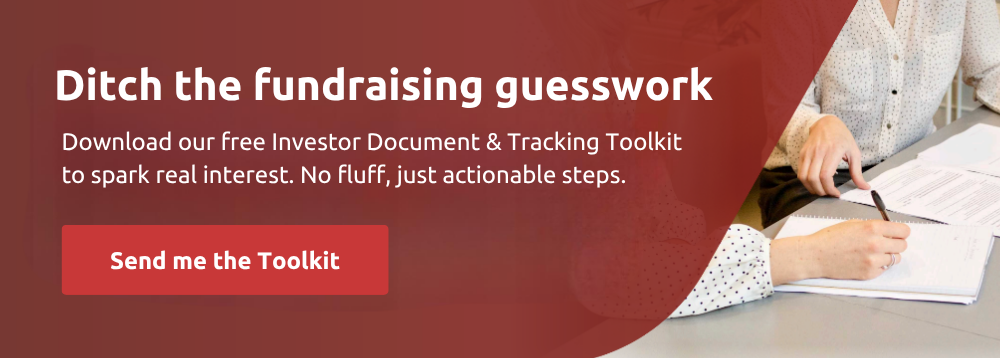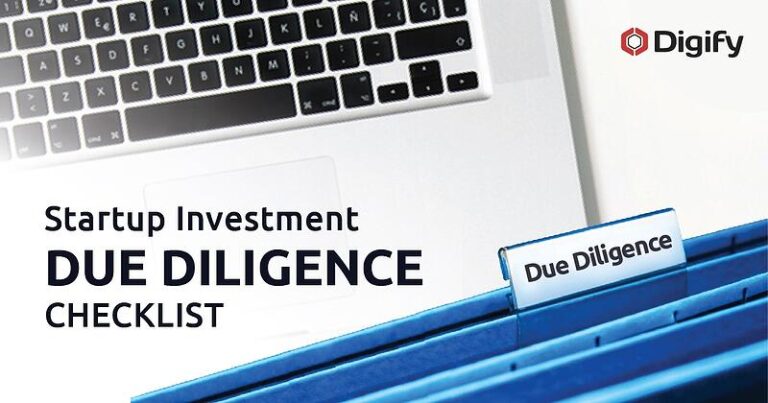![如何为投资尽职调查组织虚拟数据室 [免费清单]](https://staging-x.digifyteam.com/wp-content/uploads/2020/01/investment_due_diligence_checklist_organizing_data_room-e1589517218758.jpg)
本文是 向 LP 筹集资金完全指南. .这本指南涵盖了从确定投资论点、制定战略筹资计划到掌握投资者尽职调查以及驾驭人工智能和环境、社会和公司治理整合等新兴趋势的方方面面。.
每一章都在前一章的基础上为您提供了一本完整的筹款手册。虽然下面的文章信息量很大,但阅读整本指南,了解如何快速完成筹款过程,您将获得最大的价值。.
尽职调查阶段是筹资过程中的关键时刻,在这一阶段,最初的兴趣会转化为具体的承诺,或者有希望的机会会夭折。在过去十年中,投资者尽职调查有了长足的发展,变得更加全面、系统和冗长。的确如此、, 埃森哲在 2025 年初调查的 75% 位私募股权领导者一致认为,私募股权投资已变得更加复杂, 导致更加注重深入的尽职调查. .现代尽职调查流程通常包括多个并行工作流。投资尽职调查会审查您的战略、业绩记录和市场机会。.
运营尽职调查(ODD)也同样重要,机构投资者现在已将正式的运营尽职调查作为其流程的标准组成部分。许多机构投资者现在专门成立了专业团队来评估非投资风险。法律和合规审查可确保遵守监管规定和适当的基金结构,而背景调查则可验证声明和评估人品。此外,环境、社会和治理(ESG)评估已成为标准而非可选项,毕马威会计师事务所 2024 年的一项研究显示 五分之四的全球交易商现在将环境、社会和治理因素纳入其并购议程, 和 45% 遇到了 ESG 尽职调查结论对交易的重大影响.
了解这一多层面的过程可以让您做好全面的准备,并积极主动地管理经验,而不是被动地回应投资者的要求。最成功的经理人会将尽职调查作为加深关系和展示卓越的机会,而不是将其视为需要克服的障碍。.
为全面尽职调查做准备
尽职调查准备工作的质量直接关系到您在尽职调查过程中的成功程度。准备充分的经理人可以加快进程,减少投资者的工作量,并展示出卓越的组织能力,从而建立信心。准备工作应早在筹资启动前就开始,因为在积极的尽职调查过程中修改文件和流程会造成延误并引发担忧。.
稳健的尽职调查基础架构始于能够预见投资者需求的全面文档。您的投资流程文件应详细说明从采购到退出的每一个步骤,包括决策框架、委员会结构和审批权限。这些文件应反映实际做法,而不是理想中的流程,因为在尽职调查过程中,文件与现实之间的不一致很快就会显现出来。.
跟踪记录文件要求一丝不苟地关注细节和一致性。每项投资都应有记录,包括原始投资备忘录、董事会材料和报告包、估值文件和辅助材料,以及退出流程文件(如适用)。快速制作这些材料的能力体现了强大的运营能力,而记录的缺失或不一致则会引起对记录保存和治理的警惕。.
随着投资者对运营风险的关注,运营政策和程序变得越来越重要。需要文件化政策的关键领域包括合规监测和报告、估值方法和流程、利益冲突识别和管理、网络安全和数据保护、业务连续性和灾难恢复,以及费用分配和管理。.
组建尽职调查团队
要成功管理多个并行的尽职调查流程,需要一个角色和职责明确的专门团队。团队负责人通常是首席运营官或首席运营官,负责协调所有活动,并作为流程管理的主要投资者联系人。投资、运营、财务和合规方面的主题专家在各自的领域内提供详细的回复。包括法律顾问、会计师和配售代理在内的外部顾问则提供专业知识。.
团队准备工作应包括详细介绍您的股权故事和关键信息,针对可能出现的棘手问题进行练习,针对具有挑战性的询问制定明确的升级程序,以及所有团队成员传达一致的信息。在积极的尽职调查过程中定期召开团队会议,确保在多个投资者流程中的协调和信息传递的一致性。.
投资尽职调查导航
投资尽职调查是大多数投资者评估的核心内容,它考察的是您的战略能否持续产生有吸引力的回报。投资者会探究投资方法的方方面面,寻求引人注目的机会和执行能力的证据。.
投资者首先会对你的投资理论和市场机会进行压力测试。他们会考察你所确定的机会是否真实和可持续,质疑市场规模的计算、增长假设、竞争态势和时机的合理性。准备好用多种数据来源为你的市场分析辩护,在解释你的观点的同时承认反驳意见,并展示出超越表面分析的深层次、细致入微的理解。.
差异化的讨论尤为关键。投资者通常会看到数十家基金宣称采用类似的策略,因此必须清楚地阐明是什么让你的方法独一无二并具有可持续性。这种差异化可能源于专有的采购渠道、独特的运营能力、与众不同的市场洞察力或结构优势。无论你宣称的优势是什么,都要准备好提供具体的证据来证明它的存在和可持续性。.
跟踪记录分析和归因
在讨论业绩记录时,投资者会对每项投资进行细化分析,力求了解成功或失败的驱动因素,以及这些驱动因素是否可重复。这种分析远远超出了标题回报,而是要考察价值创造的来源、关键决策的时机、团队成员的贡献以及战略的一致性。.
同样,在讨论归因时,您需要对市场升值、多重扩张和运营改进之间的回报进行分解。解释自己在推动成果方面的具体作用,而不是将有利的市场条件归功于自己。对于不成功的投资,应展示学习成果和流程改进,同时避免做出有损可信度的辩护性解释。.
管理和组织结构
在尽职调查过程中,投资者还希望了解治理方面的情况--如何做出决策和进行监督。他们将评估正式的委员会结构和记录在案的流程、职责分工和控制机制、对估值和合规等关键职能的监督,以及咨询委员会的组成和有效性。他们寻求的是具有机构质量的治理证据,而不是依赖个人判断的非正式流程。.
对组织结构的审查旨在评估团队规模和组成是否支持公司战略。投资者会分析控制范围和汇报关系、关键职位的继任计划、薪酬结构和留任机制,以及与基金规模相匹配的增长计划。目的是了解贵公司是否能够在有效管理增长的同时可持续地执行战略。.
尽职调查中的环境、社会和治理因素
环境、社会和公司治理尽职调查已从专门关注转变为主流要求。投资者期望采取全面的方法,包括正式的政策和程序,并将其纳入整个投资生命周期。他们还需要考察衡量和报告框架,以及各项举措的可证明成果。没有实施证据的肤浅政策无法满足老练的投资者,他们已经看到了太多 “洗绿 ”的尝试。.
您的方法应涉及环境因素如何影响投资决策和投资组合管理。说明气候风险评估、资源效率措施和环境影响测量对决策的影响。社会考虑因素应审查劳工实践、社区影响、多样性和包容性努力以及利益相关者参与方法。而治理方面则应讨论投资组合公司的董事会构成、高管薪酬调整和透明度实践。.
处理常见的反对意见
在尽职调查过程中,即使是准备充分的经理人也会遇到反对意见。如何处理这些反对意见往往决定着筹款的成败。关键在于预测可能出现的顾虑,准备周全的应对措施,以自信而非防卫的态度处理反对意见。.
- 团队和业绩记录异议
与团队有关的反对意见往往集中在经验差距或近期离职上。在解决经验方面的问题时,应诚实地承认差距,同时解释缓解策略,如顾问关系、计划招聘或合作方式。对于人员流动方面的问题,应提供离职的背景情况,解释留住剩余团队成员的策略,并证明关键能力仍在组织内部。.
如果担心归属问题,则应提供详细的文件和第三方验证。还可能存在可重复性方面的问题。对于这些问题,你应该证明在各项投资中应用了一致的流程,并解释为什么过去的成功因素仍然具有相关性。当跟踪记录似乎与当前战略脱节时,应搭建清晰的桥梁,说明过去的经验如何为未来的成功提供依据。.
- 战略和市场异议
投资者也可能对战略提出异议,质疑差异化、市场时机或执行能力。为应对差异化挑战,应通过具体事例、支持市场洞察力的数据以及行业参与者的推荐信,为自己的独特优势提供具体证据。避免任何竞争对手都能提出的通用主张。.
对于市场时机的担忧,需要在承认风险和机遇的同时做出平衡的回应。为了消除这些顾虑,请表明您已意识到潜在的挑战,并解释为什么当前的条件为有准备的投资者创造了机会。谨慎使用历史类比,表明从过去的周期中学习,同时承认当前的独特情况。.
通过尽职调查过程建立信任
建立信任不仅仅是正确回答问题。它还关系到你如何管理整个过程。如果您反应迅速,就表明您尊重投资者的时间和组织能力。对响应时间设定明确的预期,并始终如一地满足这些预期。出现延误时,应主动沟通,而不是让投资者疑惑。.
如果你能确保过程透明,那么即使是在处理棘手的话题时,也能大大提高可信度。诚实地承认挑战和错误,同时展示学习和改进的成果。为事后看来可能有问题的决策提供背景资料。投资者明白,投资涉及不确定性和偶尔的失误。他们希望看到诚实的评估和持续的改进,而不是人为的完美。.
掌握投资者尽职调查要求做好准备,掌握技巧,并真正参与到投资者关注的问题中去。这一过程已从文件记录演变为对投资能力、运营基础设施和组织特性的全面评估。成功并非来自于回避审查,而是将其作为展示卓越和建立持久关系的机会。.
最成功的经理人会将尽职调查作为一个相互评估的过程,而不是单向审查。在投资者评估你的基金的同时,你也要评估他们是否适合作为长期合作伙伴。这种视角将尽职调查从一种需要忍受的折磨转变为一个有价值的过程,从而加强你的组织和关系。.
Willy Cheah
作者
营销专家,专注于将洞察力转化为可衡量的业务影响。.
您可能还喜欢
![如何为投资尽职调查组织虚拟数据室 [免费清单]](https://staging-x.digifyteam.com/wp-content/uploads/2020/01/investment_due_diligence_checklist_organizing_data_room-e1589517218758.jpg)




